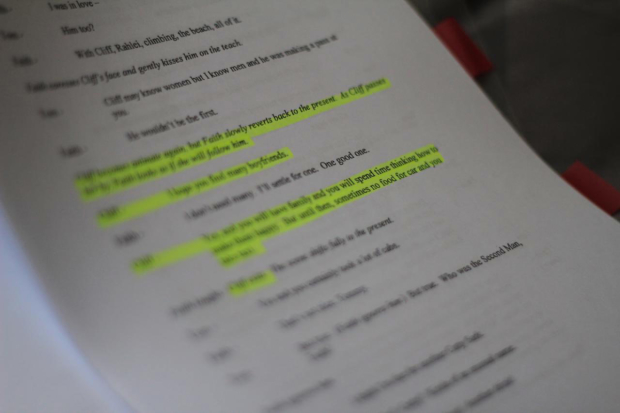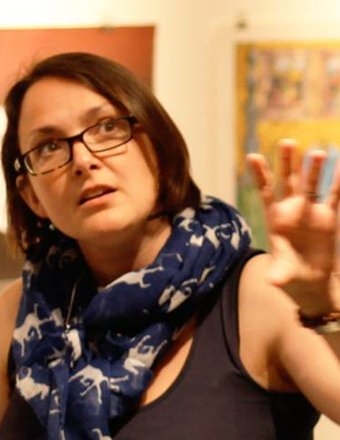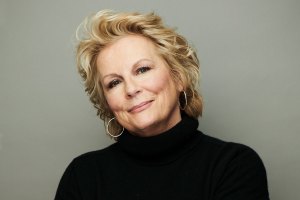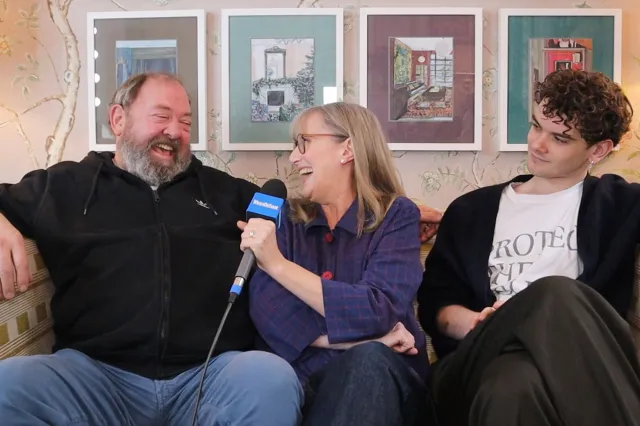Why becoming a playwright is tougher than ever
Playwright Hannah Khalil on why the disappearance of literary departments means becoming a playwright is getting harder and harder

People often ask me how I became a playwright, and I’m reluctant to tell them. Not because I’m ashamed of my lack of 'official qualifications', but because the way I 'got in' and learnt my trade is no longer an accessible route in for other would-be writers.
Let me explain: I started as an actor who was frustrated on and off stage, but always wrote bits and pieces – short plays and monologues – from when I was at university studying English and Drama.
Then the worst possible thing happened. I won a prize from Soho Theatre for one of my mini plays and thought: "Oh, this is easy – I’ll be a writer". What ensued was ten years of learning by graft: I’d have an idea, write it up into a play, bore everyone about it, make my actor friends read it for me, redraft it a little, then, secure in its brilliance send it to every producing theatre in the land.
We need new, diverse voices, but there’s little grassroots infrastructure to bring them into theatre
Back in the early noughties, almost all theatres with Arts Council funding received some of it on the proviso that they would read new, unsolicited, plays and then send the writer a detailed written report.
To be clear: an unsolicited play is one sent by an aspiring writer who has no agent. Anyone could send in plays.
So, I’d spend time and money printing plays, sending them off in the post and then wait eagerly for Ian Rickson or Mike Bradwell or Trevor Nunn to send me a note telling me when my play would be on. Of course what came instead were notes telling me all the problems in each of these plays, and at the time this was very, very disappointing (after all I was expecting main stage at the Nash not diatribes on three-act structure). But I learned from that feedback and as a result each subsequent play and my sense of me as a writer, and what theatres were after, grew and grew. And those theatres became familiar with me and my work, saw I wasn’t going away, and invited me on little courses. Slowly I began to be a little bit better.
But 2010 brought the government’s spending review and the world changed. Funding to the Arts Council and theatres in turn was slashed mercilessly, and those incisions went deep into the infrastructure of literary departments. I expect only writers really noticed or cared, but where most new writing theatres had at least two members of staff and a team of readers, now only one member of staff would remain – if even that. Open submission policies started disappearing all over the place, only work by writers who had agents would be read and even then full reports never provided. Doors were closing for writers everywhere.
If we want significant change the role of the literary department needs to be put back at the heart of producing theatre
Yes there were courses in playwriting – MAs and postgrads – but I couldn’t have afforded that when I started out, coming from the background I did, which was different to the (largely white, male) writers whose work I was seeing produced on stages year in, year out.

© Yahya Zaloom, P21 gallery, London
Around this time I was encouraged to put on my own work and invite people and with no financial cushion this was difficult. These days it’s almost impossible with a fringe theatre model, which means people have to effectively hire the space and pay thousands of pounds up front (as I moaned about in my recent blog: The session I should have called at Devoted & Disgruntled or Why fringe theatre is only for trustofarians).
This writer’s opinion is we are in a sad state of affairs: the arts and cultural industry more widely realise we need new, diverse voices, but there’s little grassroots infrastructure to bring them into theatre, which has historically cultivated new voices, that go on to work in the wider industry. Until this changes, the landscape will remain white and privileged. It’s not all doom and gloom – there are some initiatives trying to redress the balance at places like Theatre Royal Stratford East, Soho, the Bush and with companies like Tamasha. But if we want significant change I think the role of the literary department needs to be put back at the heart of producing theatre.
Hannah's plays include Scenes from 68* Years which ran at the Arcola and Plan D which was produced at the Tristan Bates Theatre. She also writes for radio and film and has worked at the National Theatre Studio, Royal Court Young Writers' Programme and Tinderbox Theatre in Belfast. She is currently writer on attachment at the Bush as part of Project 2036.












